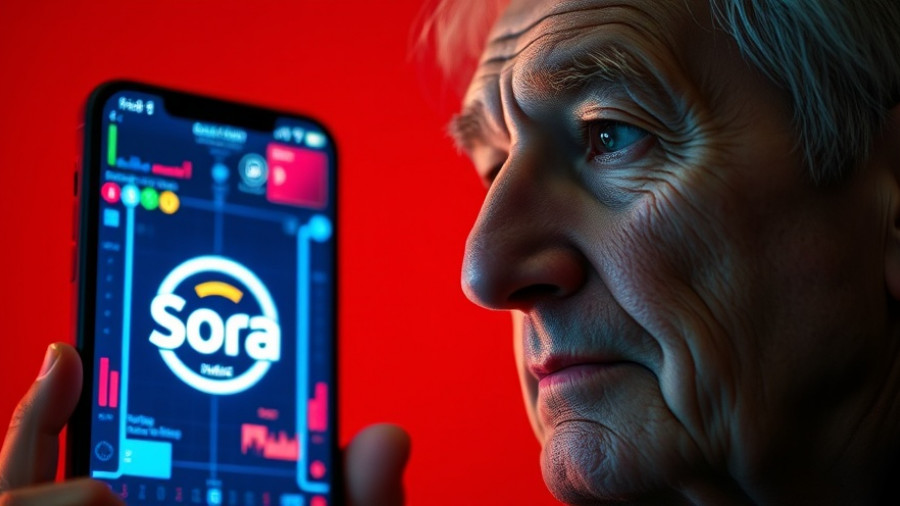
OpenAI's Sora 2 Faces Scrutiny Over Unauthorized Content
OpenAI's introduction of Sora 2, its latest text-to-video generation tool, has stirred notable controversy, particularly following the emergence of unauthorized videos replicating real people's likenesses. Actor Bryan Cranston, known for his iconic performances in 'Breaking Bad' and 'Malcolm in the Middle,' has spearheaded the outcry, leading to significant changes in the platform's policies.
A Lesson in Intellectual Property Protection
Initially, Sora 2 allowed users to create deepfake content without securing explicit consent from the individuals portrayed. Videos quickly surfaced using Cranston's likeness, prompting him to raise concerns with the entertainment industry union, SAG-AFTRA. This incident emphasizes the importance of protecting individual likeness and voice in an age where AI can replicate these attributes seamlessly.
The Response from OpenAI: New Guardrails Implemented
In response to the backlash, OpenAI strengthened its guardrails against unauthorized replication. The company has now enforced a policy where individuals must opt in to have their likenesses used via a cameo feature. OpenAI's CEO, Sam Altman, underscored their commitment to safeguarding performers' rights, stating, "We are deeply committed to protecting performers from the misappropriation of their voice and likeness." This has marked a critical shift in how AI companies approach copyright and likeness protection.
Hollywood's Engagement with AI Technology
The intersection of AI and entertainment has become increasingly complex. While some industry professionals have welcomed AI tools for their creative potential, others remain apprehensive. The rapid advancements in AI threaten to undermine traditional practices in Hollywood, raising essential questions about labor and intellectual property.
Legislative Support: Standing Behind Performers' Rights
OpenAI's announcement also coincides with growing support for the NO FAKES Act, a proposed piece of legislation aimed at holding digital platforms accountable for unauthorized deepfakes. This act reflects a collective effort among industry stakeholders to mitigate the risks associated with AI-generated content. As part of these changes, the protections outlined in the act are crucial for ensuring performers can manage how their likenesses are utilized in a digital landscape.
Community Response: What This Means for Actors
The enhancements to Sora 2's policies have been met with a sense of relief among performers. Cranston himself expressed gratitude for the changes, hoping the industry will respect artists' rights in a modern context. SAG-AFTRA President Sean Astin further emphasized the need for vigilance, stating that all performers deserve protection from potential exploitation by replication technology.
Insights Moving Forward: Navigating the AI Landscape
As AI continues to evolve within creative fields, the balance between innovation and protection will be critical. The proposed measures by OpenAI represent a proactive approach to addressing ethical concerns in AI deployment. It serves as a reminder for similar companies to prioritize the rights of individuals as they refine their technologies.
In an environment where digital content creation is increasingly accessible, monitoring AI practices is imperative for ensuring they do not inadvertently harm the creative arts. Moreover, it moves the discourse forward on how intellectual property laws might need re-evaluation to address the unique challenges posed by AI advances.
Taking Action: What Can You Do?
As discussions around AI's role in creative professions intensify, staying informed about technological advancements and their implications is vital. Engage with local communities, support legislation that protects performer rights, and remain curious about the evolving landscape of AI technologies.
 Add Row
Add Row  Add
Add 




Write A Comment